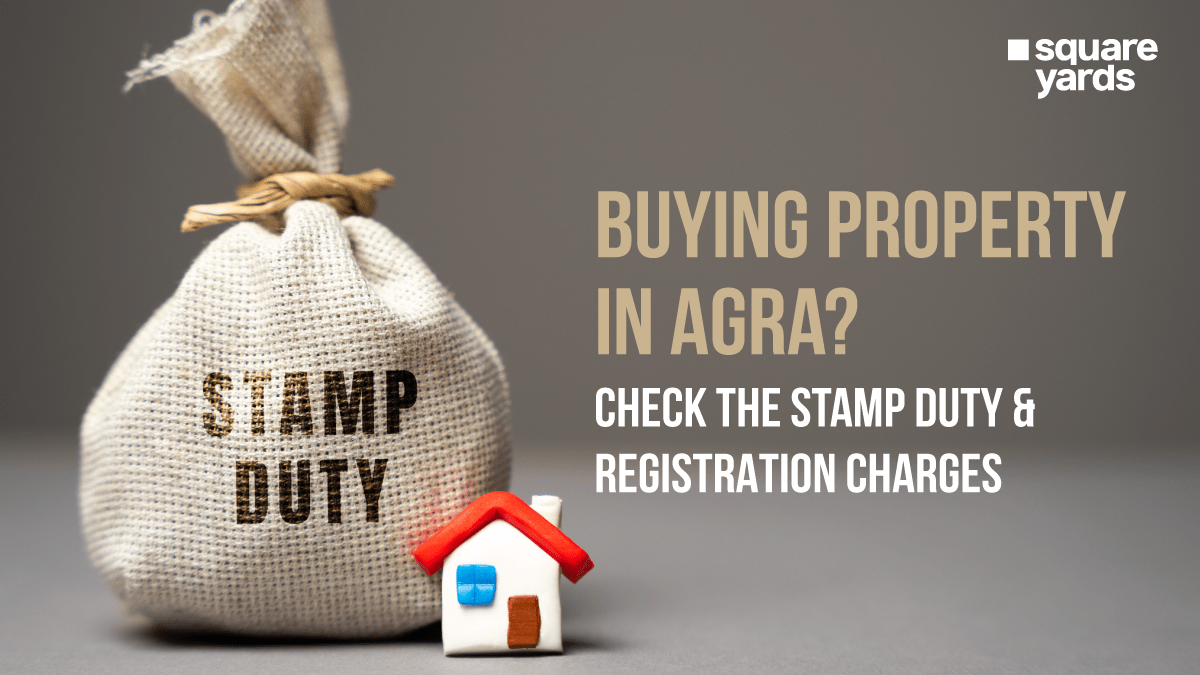If you are familiar with the concept of GST, then understanding Securities Transaction Tax (STT) could be a little easier for you. While you may know that GST is levied on the sales and purchases of every item, STT is used the same way but with the exception that it is applicable in a completely different market.
People who trade and invest in the stock market might be intimate with the term ‘securities’. Securities are sold and purchased every day in the equity market and they obviously attract some tax. Well, that’s where the STT comes into play. Every security transacted in the stock/equity market levies a tax called Securities Transaction Tax.
If you are curious about Securities Transaction Tax (STT), its benefits and calculation, keep reading the blog. We recommend you better not skip a single section or you will miss out on crucial info.
An Overview of Securities Transaction Tax
As the name suggests, it’s a tax applied on the transactions of securities. Just like GST, Securities Transaction Tax is also a direct tax. It is imposed on all the sales and purchases of securities listed on the recognised stock exchanges in India. It is identical to TCS (Tax Collected at Source).
STT is regulated under the Securities Transaction Tax Act (STT Act). The Act has specially enumerated a number of taxable securities transactions i.e. transactions on which STT is applicable.
Taxable securities comprise units of equity-oriented mutual funds, equity and derivatives. Moreover, it consists of unlisted shares sold under an offer for sale to the public under IPO and where such securities are later listed on stock exchanges.
STT boosts the transaction value of the securities as it is an amount paid over and above the transaction value.
Why is STT Required and How is It Useful?
One of the prime reasons to introduce the Securities Transaction Tax was to avoid tax evasion during capital gains.
As the name implies, STT was imposed on the value of securities, but with two notable exceptions- currency and commodities.
Such a taxation system was structured and established by the former Finance Minister P. Chidambaram on 1st October 2004 during the Union Budget for the year 2004-2005.
The system was operating quite well until it was followed by a lot of protests by brokers and traders in the year 2013. As a result, the government had to cut down the STT rates of taxation.
However, the main motive behind launching the STT was to curb evasion of capital gains tax on profits earned by security transactions which are of course fulfilled.
Besides, STT allows transparent and timely payment of tax on trading instruments. It also ensures a reduction in the inflow of speculative cash in any market. Moreover, the tax collection system has now become more efficient.
Features of Securities Transaction Tax
The main motive behind enforcing STT was to make the process of tax collection from the financial market more efficient. Besides, it has some other distinct features that are as follows:
- STT is only imposed on sell transactions of futures and options.
- Since STT levies mainly on the recognized stock exchanges, not individual members, it has certain criteria that the taxpayer must follow. The clearing members have to pay the total of all the Securities Transaction Taxes of the trading member under them.
- The value of STT on futures is marked at the actual traded price. Nevertheless, premium traded value is estimated, in the case of options.
- The tax rates of STT are based on the security type. It is also based on the sales and purchases of types of securities.
- The Central Government of India holds the authority to decide the rate of STT taxation.
So, these were some of the significant characteristics of STT. Now, let’s move on to find the tax rates in India.
Securities Transaction Tax Rate in India
The Central Government of India possesses complete control over the rate of STT taxation. The taxation rate is based on the type of security as well as on the activity whether it is a sale or purchase.
The table below represents the rate at which different types of securities are taxed:
| S.No. | Taxable Securities Transaction (STT) | Rate of taxation | Payable By |
| 1. | Sale of a Future in Securities | 0.01 % | Seller |
| 2 | Sale of an Option in Securities | 0.017 % | Seller |
| 3 | Sale of an Option in Securities, where the Option is practised. | 0.125 % | Purchaser |
The above table is further broken down to comprise information about the types of securities and the list of the corresponding taxation rates. Have a glance through the table below:
| S.No. | Type of Taxable Securities | Type of Transaction | Applicable STT |
| 1 | Delivery-based equity shares | Purchase | 0.125% on the total value |
| 2 | Equity shares, intra-day traded shares, and equity mutual fund units | Purchase | Nil |
| 3 | Equity oriented mutual funds | Redemption of units | 0.25% |
| 4 | Derivative- sale of futures | Sale | 0.017% |
| 5 | Derivative sale of futures | Sale | 0.017% |
How to Calculate Securities Transaction Tax?
If you are good at calculating averages, then calculating STT will be a cakewalk for you. Securities Transaction Tax is computed on the Average Price, instead of the FIFO (First In First Out) or LIFO (Last In First Out) method to calculate the Securities Transaction Tax.
Therefore, before we jump off to calculate the STT, let us first determine the average price. The formula for calculating the Average Price is as follows:
Average Price = (Purchase Price x Purchase Qty) + (Selling Price x Selling Qty) / (Purchase Qty + Selling Qty)
For instance, Ramesh bought 400 shares of Reliance at ₹ 150 and sold them at ₹ 200. Then, he bought 300 more shares again at 230.
In this case,
Average Price = [First Buy (400 x 150) + Second Buy (300 x 230) + Sell (400 x 200)] / [First Buy (400) + Second Buy (300) + Sell (400)]
= ₹ 190.
Now, the Securities Transaction Tax (STT) for the intraday will be charged @ 0.025% on only the sale side, which is-
STT = 400 x 190 x 0.025% = 19.
For the delivery transaction, the STT will be charged at @ 0.1% on both the activities i.e. on buy and sale. The STT here can be calculated as-
STT = 300 x 190 x 0.1% = 57.
Securities on which STT is Applicable
Securities Transaction Tax is imposed on different types of transactions initiated on the domestic equity markets. As per the Securities Contract Act, 1956, the STT would be applicable on the following transactions:
- Shares, debentures, bonds or any other securities traded in the stock market
- Derivatives and equities traded in the market
- Mutual funds based on equity trading
- Rights or interests in securities
- Units allocated to customers by any collective investment scheme
- Government securities that possess equal nature of equity
STT Exemption under Income Tax
Section 36 of the Income Tax Act, 1961 states that a person can claim STT under Income Tax if the amount paid by the person is qualified as business expenditure. This stands true only when you are presenting share income under the head “Profit/Gains from Business and Profession” which means if trading stocks is a professional preference and is being considered from a business point of view.
Nevertheless, if an assessee is a self-employed or salaried person dealing only in the stock transactions for investment purposes and trading in securities isn’t one of his ultimate lines of the profession, then any losses or gains in such situations can be categorised as long-term capital gains or short-term capital gains. This will entirely depend upon the time for which the stocks are in possession. Moreover, such a person doesn’t have the authority to claim Securities Transactions Tax under Income Tax.
Levy of Securities Transaction Tax
Until now, you might have understood that an STT is levied on the sale and purchase of securities listed on stock exchanges. It’s the Government of India that has the authority to set the STT rate.
Every transaction initiated in the stock market comprising equity and equity derivatives (futures and options) is applicable for taxation under the Securities Transaction Act.
The STT is levied as soon as any sale or purchase transaction is successful. As an outcome, the STT makes the cost of the transaction go up.
Go through the table to know about the rate of STT on various securities transactions:
| Taxable Securities Transaction | Rate of STT | Person responsible to pay STT | Value on which STT should be paid |
| Delivery-based purchase of equity share | 0.1% | Purchaser | Price at which equity share is bought* |
| Delivery-based sale of an equity share | 0.1% | Seller | Price at which equity share is sold* |
| Delivery based sale of a unit of oriented mutual fund | 0.001% | Seller | Price at which unit is sold* |
| Sale of equity share or unit of equity-oriented mutual fund in a recognised stock exchange otherwise than by actual delivery or transfer and intraday traded shares | 0.025% | Seller | Price at which equity share or unit is sold* |
| Derivative – Sale of an Option in securities | 0.017% | Seller | Option premium |
| Derivative – Sale of an Option in securities where the Option is exercised | 0.125% | Purchaser | Settlement price |
| Derivative – Sale of futures in securities | 0.01% | Seller | Price at which such futures is traded |
| Sale of a unit of an equity-oriented fund to the Mutual Fund – Exchange-traded funds (ETFs) | 0.001% | Seller | Price at which unit is sold* |
| Sale of unlisted shares under an offer for sale to the public comprised in IPO and where such shares are subsequently listed in stock exchanges | 0.2% | Seller | Price at which such shares are sold* |
| Purchase of units of Equity-oriented mutual funds | NIL | Purchaser | NA |
Example of Securities Transaction Tax (STT)
STT is applicable on all the securities sold and purchased on a registered stock exchange. Let us consider an example to understand this taxation system:
Assume that an investor named Sanjay invests in the Indian stock exchange. He bought 1500 shares on 10th October for ₹ 100 each in the morning. Then, he sold all the shares at ₹ 120 each in the evening.
According to the intraday equity trading, the STT applicable on this transaction will be 0.025%.
Now, this is the part where you have to carry out the calculations. Well, we all have studied percentages in our school. Right?
STT = 0.025% x 120 x 1500 = ₹ 45.
Frequently Asked Questions (FAQ)
Is security transaction tax refundable?
No, STT is not refundable. Besides, one cannot claim it as a part of the acquisition cost. Also, it won’t mitigate any liabilities associated with capital gains tax.
The long term capital gains tax (LTCG) is 15%. Nevertheless, one can claim it as a business expense and other taxes and charges by the traders trading in shares or mutual funds or Futures & Options.
Is STT a direct or indirect tax?
STT is a direct tax that is levied during the sale and purchase of securities in the stock market. It is collected by the Central Government.
Is STT an allowable expense?
No, STT isn’t an allowable expense
In what case an STT won’t be applicable?
STT isn’t applicable at the time of off-market transactions. Also, buyers don’t need to pay any securities transaction tax while they are buying an equity-oriented mutual fund.
What are the rates of securities transaction tax on futures and options?
The rate of STT during the sale of futures contracts is 0.01% while that of during the sale of option contracts is 0.017% respectively.
When did the Securities Transaction Tax Come into force?
The STT Tax was introduced by P. Chidambaram in the Union Budget and came into force from 1st October 2004.













































